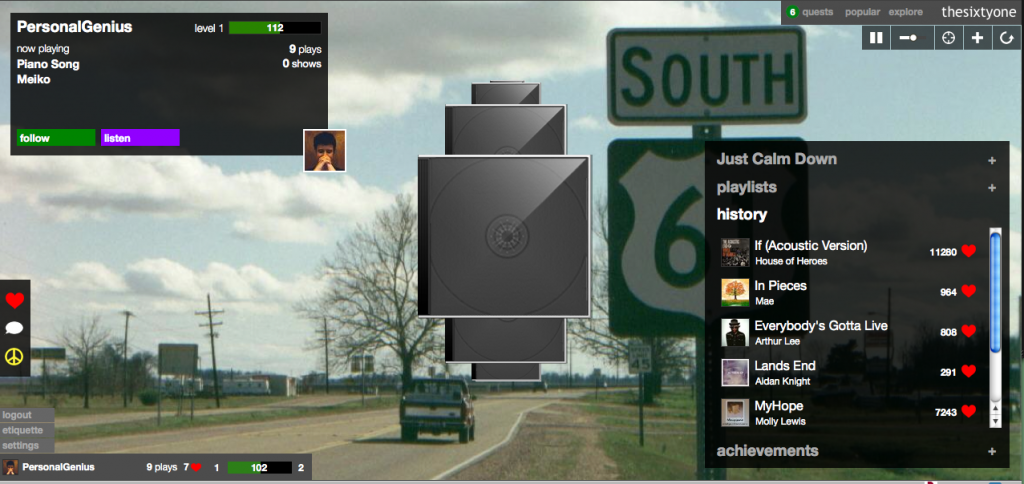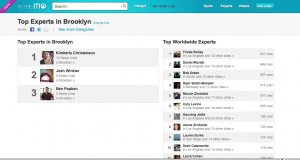Gamification is the integration of game dynamics into any medium such as website, community and school etc in order to drive a positive response, participation and engagement from a target audience. Without a doubt, gamification will be popular in education and educational technology in 2011.
Already we’re seeing many interesting developments within education and the influence of gamification. Fraser Spiers, a tech savvy educator at Cedars School of Excellence, manages iPad4Edu.com, a Q&A site focussing on iPads and education. Professor Lee Sheldon assigns XP instead of traditional “letter grades” in his undergraduate Telecommunications course at Indiana University, and Channel 4 in the UK has commissioned a number of UK indie games studios to develop educational games and smartphone apps.
Recently, the iTunes store launched a new apps section entitled “Special Education” with categories like Sign Language, Communication, Accessible Readers, Diagnostics & Reference, Emotional Development, Seeing & Hearing, Language Development, Literacy & Learning, Organization, and Life Skills. As Director of Marketing for Wrinkled Pants, I am always investigating new educational apps for the iPad and iPhone to learn what is best of breed. I am also curious to explore what elements, if any, of gamification are being used including achievements, rewards, leaderboards, etc. A few of these in particular caught my attention:
Miss Spell’s Class is a useful spelling app from the creators of Dictionary.com. The player is able to hold spelling bees and have students challenge their parents, siblings or peers as they cycle through the database of words to decide if they are spelled correctly or not. Points are awarded for speed and accuracy.


I like it, but where are the positive reinforcements, achievements, and a healthy opportunity for self expression? It’s a little too much like school and not enough like playing to really hold a child’s interest for very long.
The Elements: A Visual Exploration is a veritable veteran to the iPad platform and is one that Apple likes to use to showcase the iPad’s capabilities.


The Elements is an interactive periodic table and at $13.99 it’s one of the more expensive apps of its kind. Touch objects to zoom in on them, watch videos, read about their properties and marvel at the detail and clarity you get from one of the best educational iPad apps that money can buy. Gorgeous?-Yes. Interactive? -Absolutely. But where is the gameplay? More could have been done to elicit student engagement and achievement as they learn by “tapping.” There’s very little here to garner a sense of accomplishment or encourage further use.
Lastly, Number Sense HD, is a mathematical app aimed at Kindergarten kids, but has great education merit for preschoolers and 1st graders.


It is made up of 5 mini-games. Each one can be adjusted for difficulty in the settings, and will test a different facet of math such as counting, sequencing, comparisons, greater than and less than, as well as simple addition and subtraction. The games are fun and engaging and with it brings great rewards, badges and achievements, respect and ultimately, a stronger engagement for players.
There’s a very delicate balance that needs to be struck when it comes to educational games. Kids can smell the “educational” part from a mile away, parents and teachers want to be assured that the game is purposeful. These games have to be well-designed, fun, education and, above all else, engaging. As gamification becomes more popular and its positive effects more respected we can expect to keep seeing a rise in high quality educational games. For educational games and apps, let’s keep working toward positive reinforcement. Only then will we achieve our individual and collective gold stars!
_____________________________________________
 John Horodyski is the Director of Marketing & Business Development for Wrinkled Pants; an educational software studio focused on the development of apps to improve the literacy skills of underachieving elementary and secondary school students. John is also VP, Learning, Professional Development, & Client Services at GISTICS Inc, a consulting firm specializing in marketing operations management and digital asset management. John teaches a graduate course at San José State University, School of Library & Information Science in Digital Asset Management. He has published professional articles and presented at numerous conferences on digital media, metadata in video games and taxonomy design. He holds a Masters Archival Studies and Masters Library and Information Science from the University of British Columbia and is the Managing Editor to the Journal of Digital Asset Management.
John Horodyski is the Director of Marketing & Business Development for Wrinkled Pants; an educational software studio focused on the development of apps to improve the literacy skills of underachieving elementary and secondary school students. John is also VP, Learning, Professional Development, & Client Services at GISTICS Inc, a consulting firm specializing in marketing operations management and digital asset management. John teaches a graduate course at San José State University, School of Library & Information Science in Digital Asset Management. He has published professional articles and presented at numerous conferences on digital media, metadata in video games and taxonomy design. He holds a Masters Archival Studies and Masters Library and Information Science from the University of British Columbia and is the Managing Editor to the Journal of Digital Asset Management.






















